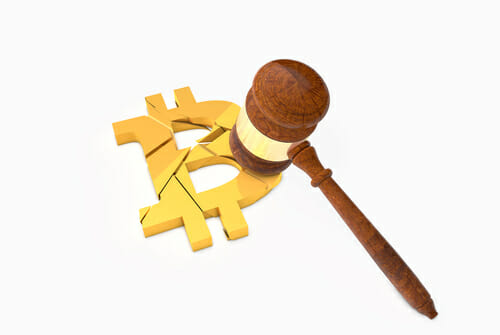The Central Bank of Paraguay received a parliamentary proposal to encourage discussion. The use of cryptocurrencies is not prohibited in the South American country.
It is expected that, by late 2020, a new law regulating cryptocurrencies in Paraguay’s financial system will be ready, according to the deputy of the Patria Querida Party (PPQ) Sebastián García.
The congressman confirmed that he had sent the regularization proposal to the highest authority of the Central Bank of Paraguay (BCP), José Cantero, in order to encourage discussion about the cryptocurrency ecosystem. The intention is to refine a measure either through an organic law or a new legislative framework, said García.
According to the parliamentarian, companies operating with cryptocurrencies in Paraguay are expected to adhere to the Law against Money Laundering. In his opinion, the objective is to add this means of payment to Paraguay’s financial system formally.
Due to the difficulties experienced by several mining and cryptocurrency exchange houses to operate in the market, it was sought to mediate from the Science and Technology Commission of the Chamber of Deputies of Paraguay. For that reason, both Secretariats of State and representatives of the private sector were summoned.
The deputy specifically talked about Cripex, a cryptocurrency exchange house operating internally, which has not yet legalized its access to the banking sector due to problems with some banks. This situation has forced it to receive money in the form of cash and transfers from electronic wallets.
It should be noted that the use of cryptocurrencies is not prohibited in Paraguay. However, there is no specific regulation controlling and monitoring this ecosystem, so Bitcoin users trade it at their own risk.
Preventing Money Laundering
García stressed that after the proposed dialogue with the parliament, the representatives of the private sector joined in a consolidated petition to be considered “obligated subjects” according to Law No. 1015. The objective is to prevent and suppress unlawful acts intended to legitimize money or goods.
He commented that, both at the public hearing and at the technical table created after the hearing, the parliamentary body proposed short-term solutions and some measures to be adopted in the medium term.
In the legislator’s opinion, the most immediate solution is that Bitcoin mining companies and cryptocurrency exchange houses are considered “obligated subjects” under that law.
He considers that, “in the medium term, Paraguayans should see a law that regulates crypto assets more broadly. By late 2020, there could be adequate regulation of cryptocurrencies,” he stated. He added that he did not know if the Central Bank of Paraguay is already evaluating a regulatory framework for crypto assets.
Legal Status of Cryptocurrencies
It should also be noted that the first government agency addressing the legal use of cryptocurrencies was the Secretariat for the Prevention of Money and Property Laundering (Sepreland). In fact, in May 2018, it reported that Bitcoin was an unregulated and highly risky payment method. However, it said that the State would not intervene in the development of this technology.
In early 2019, the Central Bank of Paraguay highlighted that Bitcoin has no legal course in the territory, so it is not controlled, supervised or regulated by the government, so they urged users to be cautious when trading cryptocurrencies.
By Willmen Blanco











